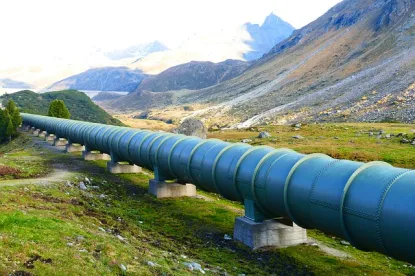White House Nominates Howard “Skip” Elliott to be PHMSA Administrator
On September 11, President Trump nominated Howard (“Skip”) R. Elliott to serve as the Administrator of the Pipeline and Hazardous Materials Safety Administration (PHMSA). According to a White House announcement, Mr. Elliott had a long career in the freight rail industry, and for the last 10 years served as the group Vice President of Public Safety, Health, Environment and Security for CSX Transportation, where he worked on hazardous materials transportation safety, homeland security, crisis management, and environmental compliance and operations. He was involved in developing and implementing computer-based tools to assist emergency management officials, first responders, and homeland security personnel in preparing for and responding to a railroad hazardous materials or security incident.
The Senate Commerce, Science & Transportation Committee will consider Mr. Elliott’s nomination on September 27.
PHMSA Rulemakings Update. The tables below summarize the status of pipeline safety rulemakings pending before PHMSA, as reflected in the Department of Transportation’s (DOT) August Significant Rulemaking Report and the Unified Regulatory Agenda, released in July by the Office of Management & Budget’s (OMB) Office of Information and Regulatory Affairs (OIRA). The Unified Regulatory Agenda now appears in two principal parts: Current Agenda Agency Regulatory Entries for Active Actions and Current Long Term Actions.
Under Executive Order (EO) 12866, OMB reviews proposed significant rules to ensure they are consistent with applicable law, the President’s priorities, and the principles set forth in the EO, and to ensure the proposals do not conflict with another agency’s policies or actions. OMB also analyzes the cost-benefit analyses in support of the proposals. While the EO sets out deadlines for OMB evaluation, review periods are often extended.
Pending Final Rules
|
Proceeding |
DOT Estimated Submission to OMB |
DOT Estimated Publication |
OIRA Estimated Publication |
|
Enhanced Emergency Order Procedures |
Not listed |
Not listed |
September 2017 |
|
Plastic Pipe Rule |
Not listed |
Not listed |
December 2017 |
|
Safety of Gas Transmission and Gathering Pipelines |
No Date Provided |
No Date Provided |
June 2018 |
|
Safety of Hazardous Liquid Pipelines |
September 26, 2017 |
December 29, 2017 |
December 2017 |
|
Underground Natural Gas Storage Facilities |
No Date Provided |
January 31, 2018 |
January 2018 |
Pending Notices of Proposed Rulemaking
|
Proceeding |
DOT Estimated Submission to OMB |
DOT Estimated Publication |
OIRA Estimated Publication |
|
Class Location Requirements |
December 26, 2017 |
April 9, 2018 |
Not Listed |
|
Standards Update Rule - 2015 and Beyond |
Not listed |
Not listed |
September 2017 |
|
Valve Installation and Minimum Rupture Detection Standards |
Not Listed |
Not Listed |
September 2017 |
OTHER PHMSA UPDATES
Voluntary Information-Sharing Working Group will meet on November 29-30. On September 25, PHMSA issued a notice announcing that the Voluntary Information Sharing (VIS) Working Group will meet on November 29 and 30 to continue discussing the need for and the identification of a voluntary information sharing system. The VIS Working Group, created under section 10 of the Protecting Our Infrastructure of Pipelines and Enhancing Safety (PIPES) Act of 2016, will address the following topics: mandate requirements, existing integrity management regulations, data types and tools, inline inspection repair methods, geographic information system pipeline data and operator implementation, potential subcommittee needs, past integrity management lessons learned, examples of existing information-sharing systems, and the potential need for additional expertise with committee membership. The VIS Working Group will meet in Northern Virginia.
PHMSA issues stays of enforcement for operators affected by recent hurricanes. Following Hurricanes Harvey and Irma, PHMSA on September 1 and September 6 issued temporary stays of enforcement of operator qualification requirements and pre-employment and random drug testing requirements for pipeline personnel involved with activities related to hurricane response and recovery. The stays of enforcement state that PHMSA will not pursue enforcement actions relating to these regulations. PHMSA encourages operators to document instances of their inability to comply with regulations. Unless extended, the stays are in effect for 45 days from their issuance dates.
PHMSA announces One-Call grants. On September 6, PHMSA announced awards of $1.3 million in One-Call Grants to 26 states. State agencies use the grants to strengthen damage prevention programs, related compliance activities, training, and public education on One-Call Notification Programs.
UPDATES FROM CONGRESS
U.S. House of Representatives passes amendment addressing automatic and remote shutoff valves. The House of Representatives adopted an amendment to the FY18 Transportation, Housing and Urban Development Appropriations bill that would require that $1,000,000 of PHMSA’s budget be set aside for the adoption of regulations requiring automatic or remote-controlled shut-off valves, or equivalent technology, on newly constructed or replaced transmission pipelines. The amendment was offered by Congressman Salud Carbajal (D-CA) and is intended to facilitate implementation of 49 U.S.C. § 60102(n) which was adopted in section 8(b)(3) of the Pipeline Safety, Regulatory Certainty, and Job Creation Act of 2011 requiring that PHMSA, if appropriate, adopt regulations.
UPDATES FROM INDUSTRY
Pipeline Association for Public Awareness releases pipeline awareness and emergency response resources. The Pipeline Association for Public Awareness has published the 2017 edition of its Pipeline Emergency Response Guidelines, a reference resource for pipeline emergencies. This year’s edition includes a new Appendix E covering storage facilities, additional information about security measures, and revised incident response steps to more closely match those in PHMSA’s Emergency Response Guidebook.
On September 22, PAPA released a narrated presentation entitled “Pipeline Awareness and Emergency Response.”
SELECT UPDATES FROM STATES
KANSAS
On September 12, the Kansas State Corporation Commission issued an order requiring that specified gas utilities develop a plan for the systematic accelerated replacement of all of their bare steel and cast iron pipelines in Class 3 locations. Preliminary plans are due no later than December 12, and final proposed plans are due by March 12, 2018. The plans are subject to approval by the Commission. The order provides for a surcharge of up to $0.40 per residential customer per month for a return of capital expenditures for replacement projects approved by the Commission. The gas utilities also must prepare a plan for increased leak detection of obsolete plastic systems, develop a plan for annual reports updating the Commission on the mileage of mains per material by class location, and develop an annual lost and unaccounted for gas report.
NORTH DAKOTA
The North Dakota Industrial Commission, Department of Mineral Resources, Oil and Gas Division has proposed numerous amendments to the Administrative Code addressing the safety of gas and oil wells and drilling and producing locations. The proposed regulations would, among other things, require that contractors obtain the regulations before commencing operations, and require that operators purchasing existing wells be aware of the location of all oil and gas pipelines leaving the well site or facility and submit accurate schematic drawings identifying flow lines and transfer lines leaving the pad or facility. Public hearings will be held on October 11-12 to address the proposed amendments.
WISCONSIN
The Wisconsin Public Service Commission has adopted a final rule incorporating into its regulations Parts 192, 193, and 199 of the federal pipeline safety regulations effective October 1, 2017.





 />i
/>i

